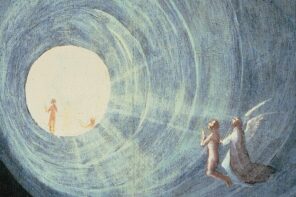When The Muppet Christmas Carol premiered 30 years ago in 1992, there were fears it would be a flop given the recent death of creator Jim Henson in 1990. If success in Hollywood is defined by the deified dollar, then the film was only a moderate success; and critics responded with merely lukewarm reviews. Despite this inauspicious start, however, the film is now a timeless classic whose appeal spans generations.
While there have been many on-screen adaptations of A Christmas Carol, the Muppets’ is not only regarded as among the best versions, it’s also, as some may be surprised to learn, among the most faithful renditions of Dickens’ novella. And while religious studies scholars have long analyzed religious themes of Charles Dickens’ 1843 tale of morality and redemption—including how Jim Henson’s own religiosity may have influenced his work (he left the Christian Science Church in 1975), it’s not the intended or imposed Christianity that makes this film magical. The magic is in the unique alchemy of the Muppets themselves, their relationship with Michael Caine who plays Scrooge, and the way it all fits together with the music, including the score by Miles Goodman and the songs by Paul Williams.
Animated by their ineffably talented human puppeteers, the Muppets of Jim Henson’s Creature Shop are often silly, sometimes wry, and always full of hope, which plays an integral part in just about every religion and belief system—as well as atheism. In The Muppet Christmas Carol, this hope abides and prevails.
The Muppets’ sincerity and lack of cynicism stand in stark contrast to human-created political discord and social divisions. In the 21st century, their sincerity, hope, and kindness offer a model of humanity that seems almost subversive. The left-handed Muppets are genuine, optimistic in their efforts (even when they aren’t fully capable), and kind in a world awash with cynicism and apathy. Whatever one’s beliefs, the purpose of the Muppets was always to demonstrate kindness, togetherness, and a sense of the silly through hijinks galore.
In addition to the Muppets, Jim Henson was integral in the creation of children’s shows like Sesame Street and Fraggle Rock, along with live-action fantasies The Dark Crystal and Labyrinth. For the project of a man who was known to not “speak above a whisper,” the Muppets declare, loudly and unequivocally that People are Basically Good.
In 1986, Jim Henson wrote a letter to his family in the event of his death that included an appeal to, “Please watch out for each other and love and forgive everybody”—advice that the Muppets adhere to, that Michael Caine’s Scrooge ultimately learns, and that we must practice if we hope to even begin to heal the hate and harms of today.
Throughout their existence, the Muppets have demonstrated the power of community and of connection over individuality and greed. Henson himself once compared the Muppets to music, because both have the power to reach “a worldwide audience in a wonderful way that nourishes the soul.” Each of these characters feels more real than hand-maneuvered constructions of felt.
Indeed, there were real-world resonances behind the scenes of The Muppet Christmas Carol. Unlike preceding Muppet movies, this one isn’t narrated by Kermit—it was too soon after the passing of his alter ego Jim Henson—but by the wonderfully weird Gonzo, played by Dave Goelz. And, regarding prolific songwriter and frequent Muppet collaborator Paul Williams, The Muppet Christmas Carol was as redeeming for him as it was for Ebenezer Scrooge. Being the first project Williams worked on after “misplacing” the 1980s due to his struggle with alcoholism, Williams wrote the songs, like When Love is Gone, which is now in the restored versions of the film.
Taking place early in his sobriety journey, working on the score offered him a “spiritual awakening” and a renewed sense of community that echoed Scrooge’s own realization of our finite time on Earth as he confronts his mortality via The Ghost of Christmas Yet to Come. Williams wrote the closing song, A Thankful Heart, with the lyrics “Who knows when it ends?” and “Yes, and every night will end and every day will start/with a grateful prayer and a thankful heart.”
The magical message of the Muppets more than 30 years on continues to be the power of a kind word, doing good, and “a thankful heart.” Lessons the world needs now more than ever.





